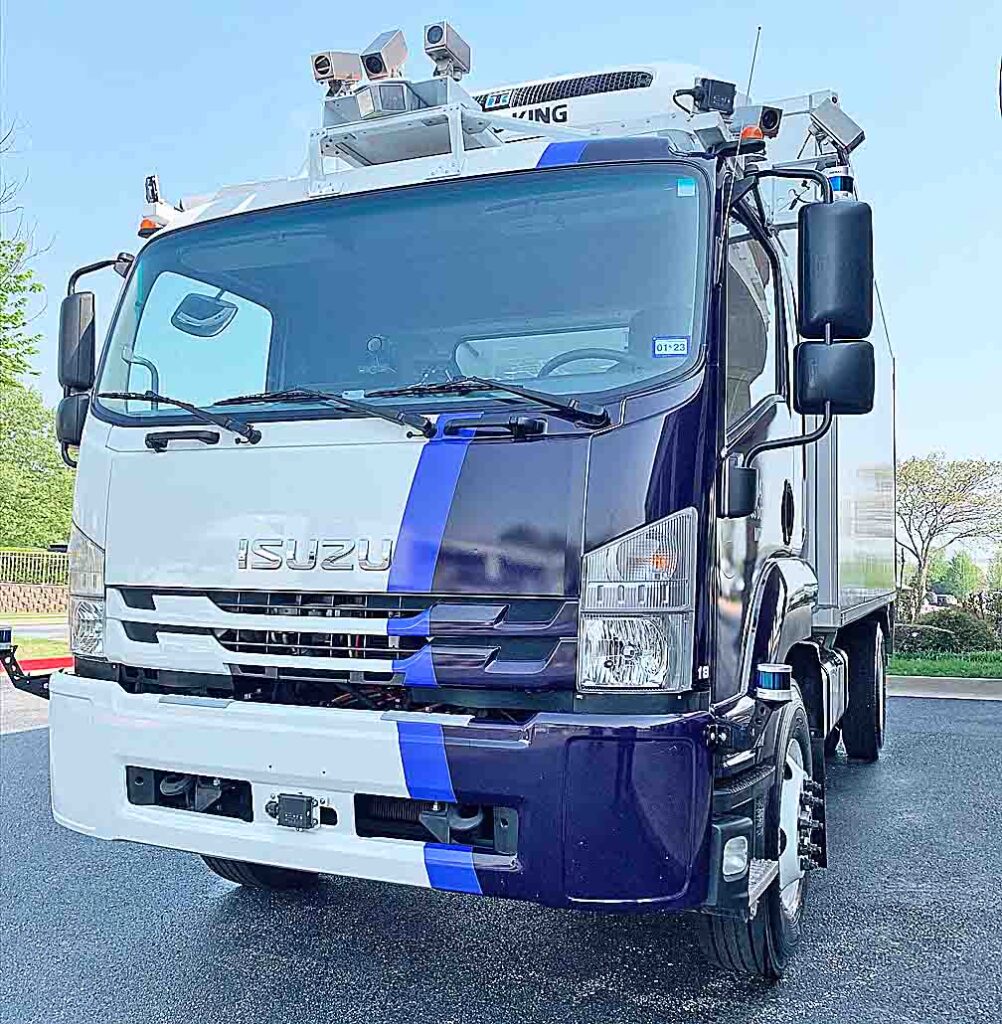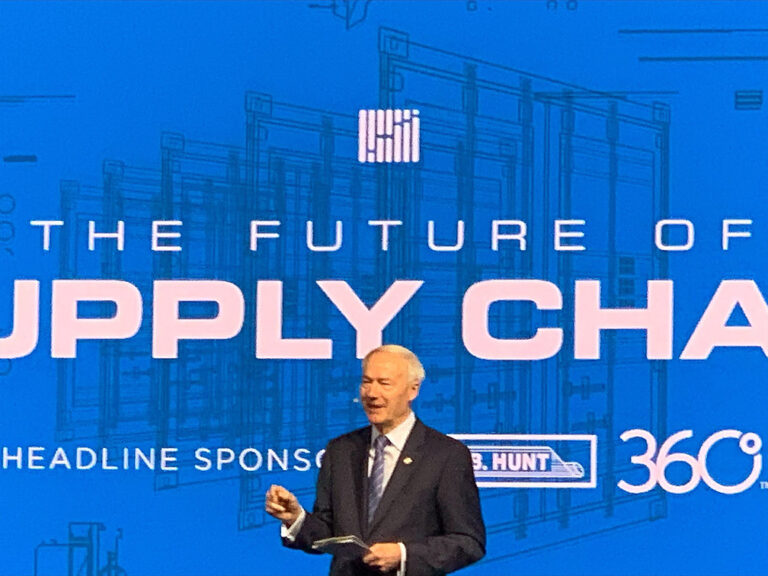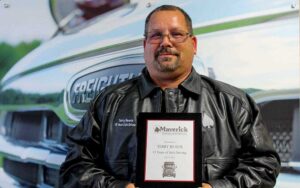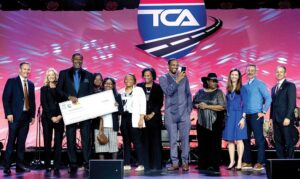ROGERS, Ark. — Surrounded by the deep-green peaks of the Ozark mountains, leaders in the freight logistics and trucking industries gathered in Northwest Arkansas Monday and Tuesday, May 9-10, to talk about the future of the nation’s supply chain.
In short, the consensus seems to be that it’s all about technology and being open to change.
The event, sponsored by FreightWaves, featured dozens of speakers, nearly 2,000 guests and dozens of vendors.
Arkansas Gov. Asa Hutchinson, who gave the opening keynote speech Monday morning, outlined several ideas he said could help bolster the nation’s supply chain.
This part of Arkansas is home to several powerhouse companie, including Walmart, Tyson Foods, J.B. Hunt Transport Services Inc. and others.
Craig Fuller, founder and CEO of FreightWaves, introduced Hutchinson and said referred to Northwest Arkansas as “the epicenter of the supply chain in North America.”
Hutchinson said he is proud of the progress Arkansas companies have made in advancing supply chain technology, such as J.B. Hunt’s 360 logistics interface. Today’s freight markets are largely managed entirely by digital interfaces like 360 that are complex in nature but designed to make things easier for everyone, from the shipper to the dispatcher and driver.
“They are taking advantage of new technologies in supply chain management that help keep consumer costs down nationally,” he said, adding that technology — specifically computer science — is vital to future supply chain success. Every school in the state of Arkansas offers computer sciences courses, and these programs are needed for students nationwide, he noted.
Hutchinson also touched on border security as it relates to the supply chain.
“We, as a government, need to partner with you (the trucking industry) to keep things moving safely,” he said. “We have to figure out ways to adjust and improve the supply chain across the globe. But how do we do that?”
First and foremost, he said, the U.S. needs to shift away from a China-centric supply chain. There has been too much volatility with the U.S. and Chinese relationship over the years, including human rights issues, he said. That translates to higher shipping costs and a lack of understanding between the two governments.
According to the U.S. Trade Representative, U.S. goods and services trade with China totaled an estimated $615.2 billion in 2020. Exports were $164.9 billion and imports were $450.4 billion. The U.S. goods and services trade deficit with China was $285.5 billion in 2020.
Trade in services with China (exports and imports) totaled an estimated $56.0 billion in 2020. Services exports were $40.4 billion and services imports were $15.6 billion. The U.S. services trade surplus with China was $24.8 billion in 2020.
Importing fewer Chinese goods may not be the answer for some companies, however.
Wayfair’s Senior Manager of Global Logistics, Jack Echeverria, who spoke in one of Monday’s afternoon sessions, said of China: “It’s going to be very hard to overcome the reliance on China and the Chinese market. They are such a large presence. But right now, we are starting to look at other areas — Africa, for example, because of their proximity to North America.”
During the morning sessions, Hutchinson continued to share his ideas about helping the supply chain, saying that the U.S. must transfer the bulk of its overseas trade to “allied countries.”
“We must trade with countries who understand basic liberties,” he said. “Mexico is a logical path. We must form better partnerships with Mexico. At one time, we had that. The (drug) cartels and human smuggling hurt us.”
U.S. port efficiency must also improve, Hutchinson said.
“Forty percent of our imports come through the ports of Long Beach and Los Angeles,” he said. “Union leaders fight automation, but we must be able to include automation as goods move through our ports.”
Hutchinson said Arkansas “wants to continue to lead the way” when it comes to cutting-edge freight logistics technology.
As an example, he pointed to the Arkansas Legislature voting in 2019 to allow autonomous trucks on the state’s highways.
“Walmart has already partnered with Gatik for autonomous routes,” Hutchinson said, referring to a deal between the retail giant and the autonomous middle-mile logistics firm. “We have to look at this technology, and we have to look at the roadblocks. We need smart tech in the supply chain for future success.”

Similarly, J.B. Hunt Transport Services Inc. has announced a long-term partnership with autonomous driving technology company Waymo Via.
Hutchinson said that, although he has past experience dealing with commerce, having served as the Homeland Security director under former President George W. Bush, the importance of freight logistics really hit home during the start of the COVID-19 pandemic.
“We had to find some way to get PPE (personal protective equipment) here to Arkansas, but it was impossible for us to go against big states like New York,” Hutchinson said. “So when we finally found a company in Europe to make some for us, it ended up being confiscated in Spain because they needed it too.”
Hutchinson added, “I understand (the supply chain) now more than I ever thought.”
Born in Pine Bluff, Arkansas, and raised in East Texas, John Worthen returned to his home state to attend college in 1998 and decided to make his life in The Natural State. Worthen is a 20-year veteran of the journalism industry and has covered just about every topic there is. He has a passion for writing and telling stories. He has worked as a beat reporter and bureau chief for a statewide newspaper and as managing editor of a regional newspaper in Arkansas. Additionally, Worthen has been a prolific freelance journalist for two decades, and has been published in several travel magazines and on travel websites.








